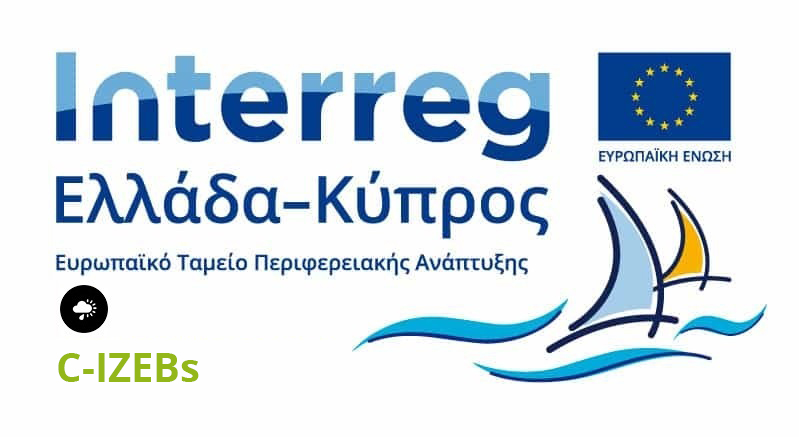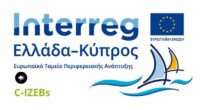The project C-IZEBs (Cooperative Intelligent education & electromobility Zero Energy Buildings) or “Cooperative intelligent training and electromobility in zero energy buildings” aims to reduce energy consumption by increasing the use of Renewable Energy Sources (RES). Through the creation of “smart” school infrastructure with almost zero energy consumption in combination with the charging and use of electric vehicles, the development of a sustainable awareness of citizens is promoted, thus bringing significant social, environmental and economic benefits. However, in order to carry out this project, training in the use of new RES technologies is necessary. In school buildings due to the fact that there are no good practices regarding energy improvement, the implementation of this project finds suitable ground. In these conditions, the increase of the number of energy school infrastructures is expected, aiming at the same time to address the issues of thermal autonomy and atmospheric quality in the rooms of students and teachers.

C-IZEBs
EU, Greece & Cyprus co-financing
The project is co-financed by the European Union and the National Resources of Greece and Cyprus through the Interreg VA Cooperation Program Greece-Cyprus 2014-2020 in the axis “Efficient use of energy and sustainable transport”. Therefore, this project will be a first step that will contribute decisively to the improvement of the energy efficiency of the school buildings of the two countries. At the same time, this will reduce CO 2 emissions, while the idea of creating school infrastructure that will mitigate the negative effects of climate change will be strengthened.







The project is co-financed by the European Union and the national resources of Greece and Cyprus through the Interreg VA Cooperation Program Greece-Cyprus 2014-2020 in the axis “Efficient use of energy and sustainable transport”.
Greece and Cyprus are two countries with a closely linked historical and cultural past. The ultimate goal of the Interreg program is the collaborative improvement of the daily life of the citizens, overcoming the challenges and obstacles that hinder this project.
Co-financed projects allow the EU to continue to demonstrate the common concerns and goals of its citizens. In this context, the budget of the Interreg VA Cooperation Program “Greece-Cyprus 2014-2020” throughout the European Union amounts to 64,560,486.00 million euros (total funding) for the programming period 2014-2020.


